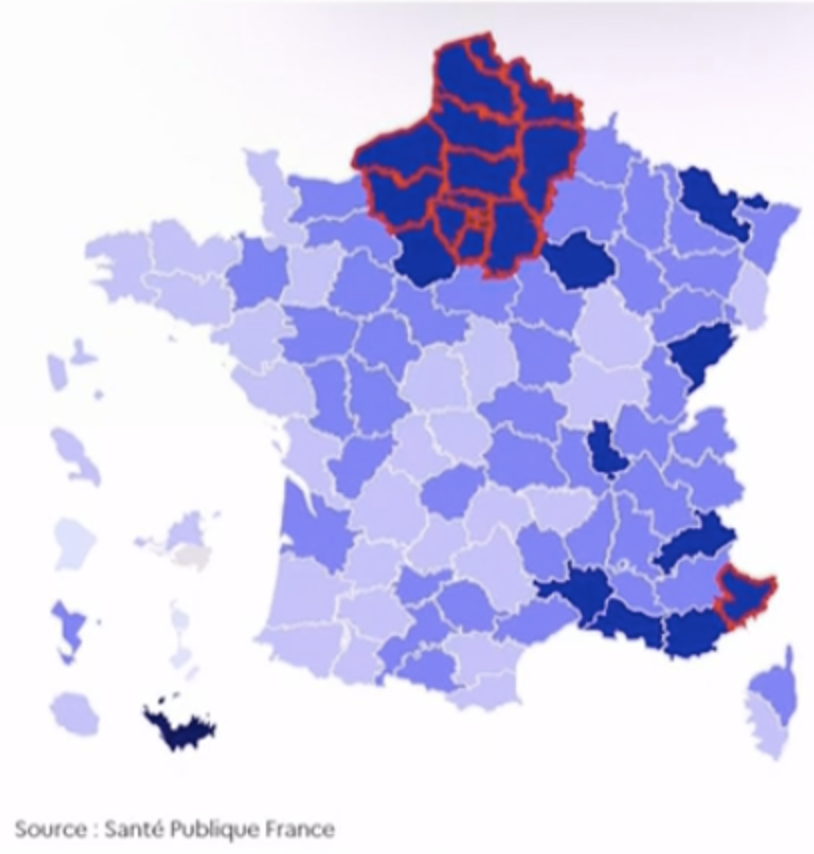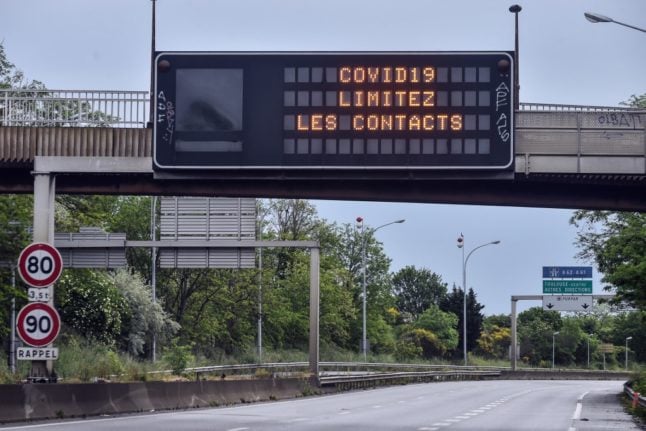Question: Can I travel from Brittany in the west to eastern France, both of which are not under lockdown, by passing through Paris – which is back in confinement and subject to a ban on regional travel?
With France effectively split into two by the new government measures to tackle to third wave of Covid-19 infections the question of travel has got more complicated.
In short those living in the 16 départements under a new lockdown are not allowed to travel to regions in France not subject to the tighter restrictions unless it is for essential work or family matters.
The 16 départements where lockdown is applicable are; Aisne, Nord, Oise, Pas-de-Calais, Somme, Paris, Seine-et-Marne, Yvelines, Essonne, Hauts-de-Seine, Seine-Saint-Denis, Val-de-Marne, Val-d’Oise, Alpes-Maritimes, Eure, Seine-Maritime.

The government has also made it clear people living in non-lockdown areas cannot travel more than 30km from their home into lockdown zones unless it is for an essential reason – find the full list of reasons HERE.
As for the question of travelling between two parts if France not subject to a lockdown by passing by an area under new confinement such as the greater Paris region of Île-de-France or Hauts-de-France in the north, the answer is yes it’s possible.
The Interior Ministry has confirmed this information to The Local.
A spokesman said: “Persons residing in départments not subject to reinforced measures may only enter departments subject to reinforced measures beyond a perimeter defined by a radius of 30 km around their place of residence for essential travel reasons (as listed on the attestation permission form).”
However the spokesman added: “In the context of long-distance travel entry is only to transit through an area subject to reinforced measures.”
So in short you can go through a lockdown area, but you cannot stop there.
And according to France Info radio which asked the same question to French authorities this applies to any form of transport, not just car.
So you could take the train from Strasbourg in the east to Caen in Normandy for example, passing through Paris.
Travellers should also bear in mind that the 7pm to 6am curfew applies across the whole country.
People are allowed to break curfew if they are travelling by train, bus or plane which arrives after 7pm, but they will need an attestation permission form, and to keep their travel tickets in case of a police check.
The Interior Ministry has previously said that the curfew travel exemption does not apply to people travelling by car, so you will need to plan your journey times carefully or stop along the way. Hotels are currently open in France.
We try to help members of The Local navigate the daily challenges of life in France, so if you have a question on any aspects of French rules and regulations, email [email protected]



 Please whitelist us to continue reading.
Please whitelist us to continue reading.
Member comments